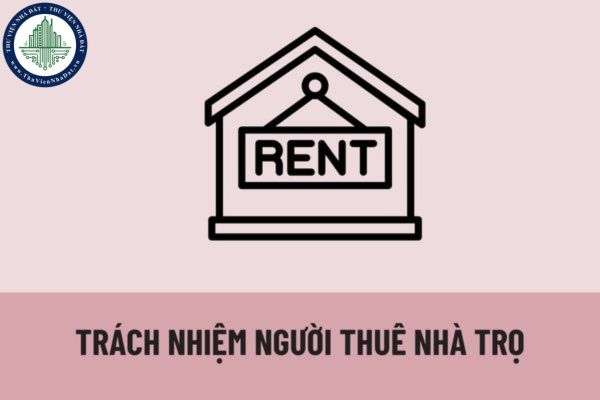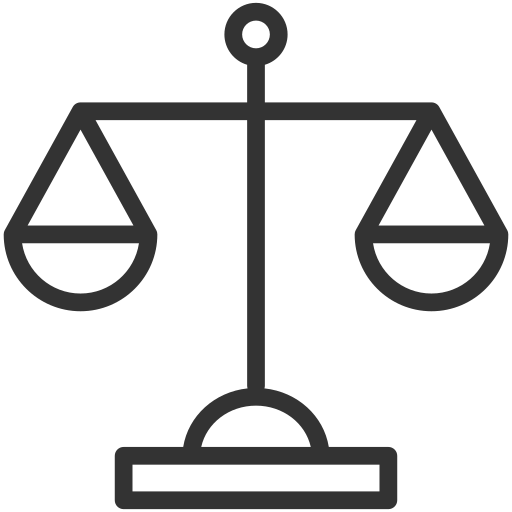Trách nhiệm người thuê nhà trọ khi làm hư hỏng nhà trọ là như thế nào? Tòa án nào có thẩm quyền giải quyết bồi thường thiệt hại do người thuê nhà trọ gây ra?
Nội dung chính
Trách nhiệm của người thuê nhà trọ làm hư hỏng nhà trọ được quy định như thế nào?
Căn cứ theo quy định tại Điều 29 Luật Kinh doanh bất động sản 2014 quy định như sau:
Nghĩa vụ của bên thuê nhà, công trình xây dựng
1. Bảo quản, sử dụng nhà, công trình xây dựng đúng công năng, thiết kế và thỏa thuận trong hợp đồng.
2. Thanh toán đủ tiền thuê nhà, công trình xây dựng theo thời hạn và phương thức thỏa thuận trong hợp đồng.
3. Sửa chữa hư hỏng của nhà, công trình xây dựng do lỗi của mình gây ra.
4. Trả nhà, công trình xây dựng cho bên cho thuê theo đúng thỏa thuận trong hợp đồng.
5. Không được thay đổi, cải tạo, phá dỡ nhà, công trình xây dựng nếu không có sự đồng ý của bên cho thuê.
6. Bồi thường thiệt hại do lỗi của mình gây ra.
7. Các nghĩa vụ khác trong hợp đồng.
Theo như quy định trên, nếu bên thuê làm hư hỏng nhà trọ thì sẽ phải bồi thường thiệt hại do lỗi của mình gây ra.
Căn cứ theo Điều 585 Bộ luật Dân sự 2015 quy định nguyên tắc bồi thường thiệt hại như sau:
Nguyên tắc bồi thường thiệt hại
1. Thiệt hại thực tế phải được bồi thường toàn bộ và kịp thời. Các bên có thể thỏa thuận về mức bồi thường, hình thức bồi thường bằng tiền, bằng hiện vật hoặc thực hiện một công việc, phương thức bồi thường một lần hoặc nhiều lần, trừ trường hợp pháp luật có quy định khác.
2. Người chịu trách nhiệm bồi thường thiệt hại có thể được giảm mức bồi thường nếu không có lỗi hoặc có lỗi vô ý và thiệt hại quá lớn so với khả năng kinh tế của mình.
3. Khi mức bồi thường không còn phù hợp với thực tế thì bên bị thiệt hại hoặc bên gây thiệt hại có quyền yêu cầu Tòa án hoặc cơ quan nhà nước có thẩm quyền khác thay đổi mức bồi thường.
4. Khi bên bị thiệt hại có lỗi trong việc gây thiệt hại thì không được bồi thường phần thiệt hại do lỗi của mình gây ra.
5. Bên có quyền, lợi ích bị xâm phạm không được bồi thường nếu thiệt hại xảy ra do không áp dụng các biện pháp cần thiết, hợp lý để ngăn chặn, hạn chế thiệt hại cho chính mình.
Theo đó, căn cứ vào thiệt hại cho căn nhà thuê trên thực tế, bên cho thuê có thể thoả thuận với bên cho thuê về mức bồi thường thiệt hại, hình thức bồi thường thiệt hại hoặc phương thức bồi thường.

Trách nhiệm người thuê nhà trọ khi làm hư hỏng nhà trọ là như thế nào? Cơ quan nào có thẩm quyền giải quyết bồi thường thiệt hại do người thuê nhà trọ gây ra?
Tòa án nào có thẩm quyền giải quyết bồi thường thiệt hại do người thuê nhà trọ gây ra?
Căn cứ theo khoản 1 Điều 35 Bộ luật Tố tụng dân sự 2015 quy định như sau:
Thẩm quyền của Tòa án nhân dân cấp huyện
1. Tòa án nhân dân cấp huyện có thẩm quyền giải quyết theo thủ tục sơ thẩm những tranh chấp sau đây:
a) Tranh chấp về dân sự, hôn nhân và gia đình quy định tại Điều 26 và Điều 28 của Bộ luật này, trừ tranh chấp quy định tại khoản 7 Điều 26 của Bộ luật này;
b) Tranh chấp về kinh doanh, thương mại quy định tại khoản 1 Điều 30 của Bộ luật này;
c) Tranh chấp về lao động quy định tại Điều 32 của Bộ luật này.
Đồng thời căn cứ tại điểm a khoản 1 Điều 39 Bộ luật Tố tụng dân sự 2015 quy định như sau:
Thẩm quyền của Tòa án theo lãnh thổ
1. Thẩm quyền giải quyết vụ án dân sự của Tòa án theo lãnh thổ được xác định như sau:
a) Tòa án nơi bị đơn cư trú, làm việc, nếu bị đơn là cá nhân hoặc nơi bị đơn có trụ sở, nếu bị đơn là cơ quan, tổ chức có thẩm quyền giải quyết theo thủ tục sơ thẩm những tranh chấp về dân sự, hôn nhân và gia đình, kinh doanh, thương mại, lao động quy định tại các Điều 26, 28, 30 và 32 của Bộ luật này;
Theo như quy định trên, Toà án cấp huyện nơi cư trú của người phải bồi thường thiệt hại là cơ quan có thẩm quyền giải quyết bồi thường thiệt hại do người thuê nhà trọ gây ra.
Lưu ý: Trường hợp đương sự hoặc tài sản ở nước ngoài hoặc cần phải ủy thác tư pháp cho cơ quan đại diện nước Cộng hòa xã hội chủ nghĩa Việt Nam ở nước ngoài, cho Tòa án, cơ quan có thẩm quyền của nước ngoài không thuộc thẩm quyền giải quyết của Tòa án nhân dân cấp huyện.
Người thuê nhà trọ phải có nghĩa vụ như thế nào đối với nhà trọ mà mình thuê?
Căn cứ theo quy định tại Điều 477 Bộ luật Dân sự năm 2015 quy định như sau:
Nghĩa vụ bảo đảm giá trị sử dụng của tài sản thuê
1. Bên cho thuê phải bảo đảm tài sản thuê trong tình trạng như đã thỏa thuận, phù hợp với mục đích thuê trong suốt thời gian cho thuê; phải sửa chữa những hư hỏng, khuyết tật của tài sản thuê, trừ hư hỏng nhỏ mà theo tập quán bên thuê phải tự sửa chữa.
2. Trường hợp tài sản thuê bị giảm sút giá trị sử dụng mà không do lỗi của bên thuê thì bên thuê có quyền yêu cầu bên cho thuê thực hiện một hoặc một số biện pháp sau đây:
a) Sửa chữa tài sản;
b) Giảm giá thuê;
c) Đổi tài sản khác hoặc đơn phương chấm dứt thực hiện hợp đồng và yêu cầu bồi thường thiệt hại, nếu tài sản thuê có khuyết tật mà bên thuê không biết hoặc tài sản thuê không thể sửa chữa được mà do đó mục đích thuê không đạt được.
3. Trường hợp bên cho thuê đã được thông báo mà không sửa chữa hoặc sửa chữa không kịp thời thì bên thuê có quyền tự sửa chữa tài sản thuê với chi phí hợp lý, nhưng phải báo cho bên cho thuê và có quyền yêu cầu bên cho thuê thanh toán chi phí sửa chữa.
Đồng thời căn cứ theo Điều 479 Bộ luật Dân sự năm 2015 quy định như sau:
Nghĩa vụ bảo quản tài sản thuê
1. Bên thuê phải bảo quản tài sản thuê, phải bảo dưỡng và sửa chữa nhỏ; nếu làm mất, hư hỏng thì phải bồi thường.
Bên thuê không chịu trách nhiệm về những hao mòn tự nhiên do sử dụng tài sản thuê.
2. Bên thuê có thể tu sửa và làm tăng giá trị tài sản thuê, nếu được bên cho thuê đồng ý và có quyền yêu cầu bên cho thuê thanh toán chi phí hợp lý.
Theo như quy định trên, người thuê trọ phải có những nghĩa vụ đối với nhà trọ mà mình thuê như sau:
Theo như quy định trên, người thuê trọ phải có những nghĩa vụ đối với nhà trọ mà mình thuê như sau:
- Bảo quản nhà trọ mà mình thuê, nếu làm hư hại đến nhà trọ thì phải bồi thường. Đối với những hao mòn tự nhiên của nhà trọ thì bên thê không phải chịu trách nhiệm trong quá trình thuê.
- Bên cạnh đó, bên thuê nhà trọ có thể tu sửa lại nhà trọ nếu như được bên cho thuê nhà trọ đồng ý. Nếu như việc tu sửa làm tăng giá trị của nhà trọ thì có quyền yêu cầu bên cho thuế thanh toán chi phí hợp lý.














